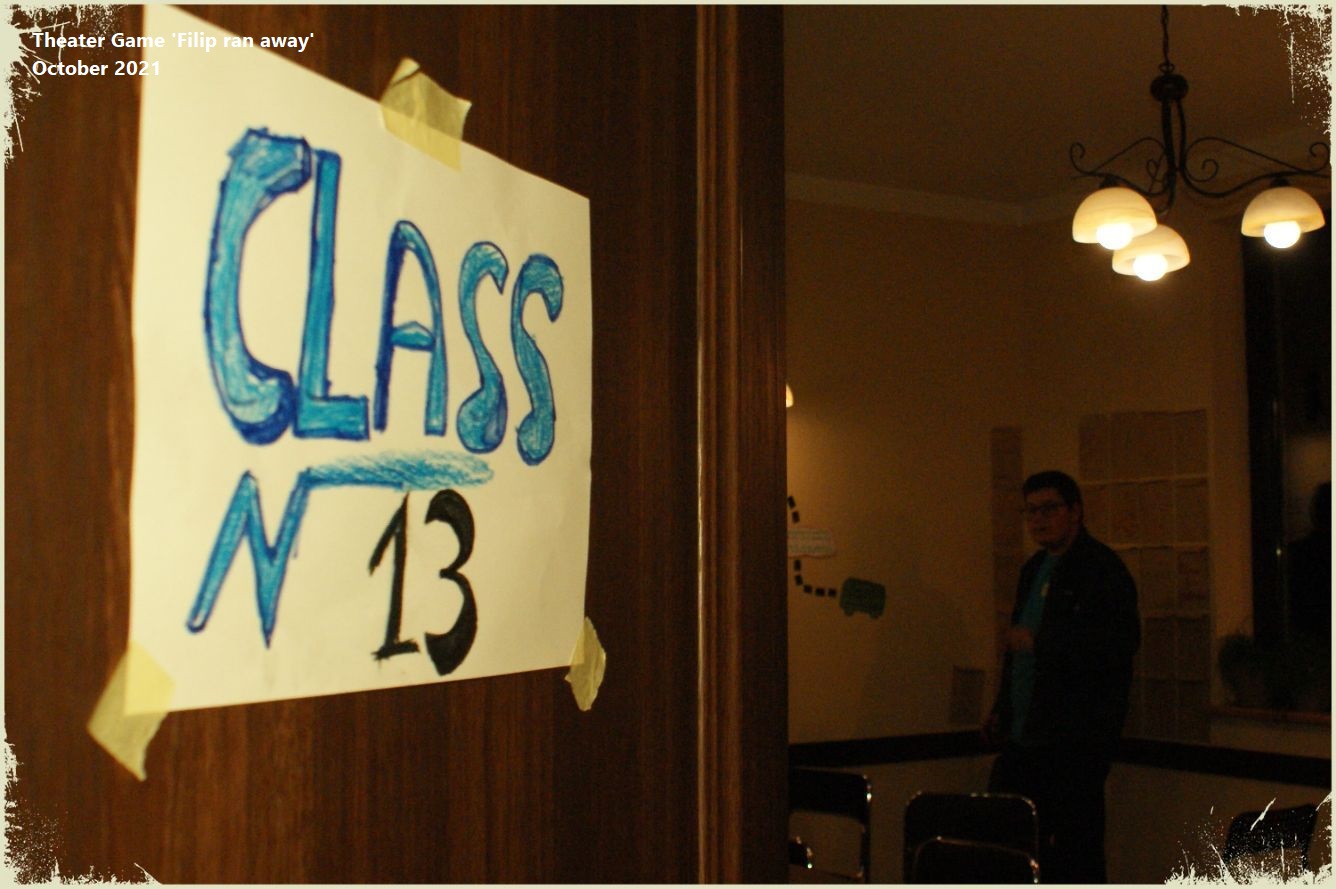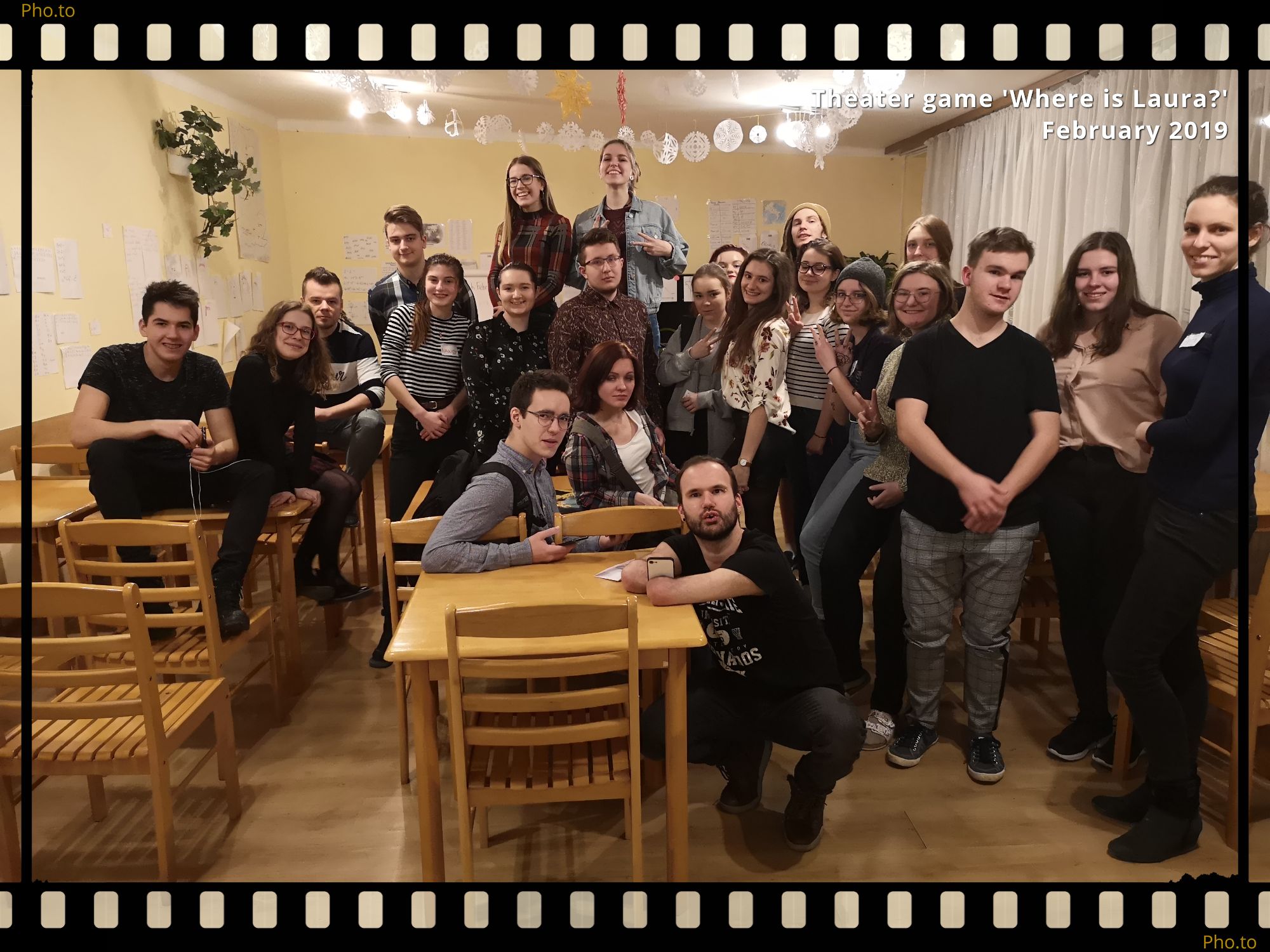WHAT IS A THEATER GAME
It is an activity on the border of game and art, during which participants create and experience a story together. The player usually receives from the creator of the game a scrap of the whole story related to the character played by him and tasks to be performed. On this basis, the player visually prepares to play the character, comes up with a way of speaking and moving that suits the character, creates himself or receives ready-made items related to the hero. The player also prepares tactics to achieve his goals in the game. The 'Game master' is running the game. Sometimes alone, sometimes there are more people. Each game has its own rules called 'game mechanics'. The decorations and sound effects prepared by the participants can make us able to move to another world, where for several hours our character played by us creates the imaginary world together with other players.
WHY WE USE THIS METHOD
Theatre games are quite a popular entertainment that many people play in private. There are also commercial events based on theater games. This activity is not only incredibly effective and addictive but also very flexible in its application. It is easy to incorporate educational elements into it that will encourage players to expand their knowledge and exchange experiences on the topic we are discussing. This is where we saw the great potential of theater games, which we use in our work with young people. Since November 2016, HEureka Generator has been the main administrator of the informal international network of theater game fans IMAGINARY REALMS, which was established in 2010 and brings together many youth organizations from all over Europe. Do you want to find out how the network works and in what activities we have used theater games so far? You will find the answers right here!
'IMAGINARY REALMS' - NETWORK OF THEATER GAME FANS
IMAGINARY REALMS was established in 2010, when students from Polish city Lublin, created together with the Polish Happy Childhood Foundation, a youth exchange entitled 'Under the wings of imagination'. The project was coordinated by current chairperson of the HEureka Generator association, Andrzej Smyk. The experience gained during that exchange started a ten-year adventure with theater games, which was full of youth exchanges, training courses, seminars and local events created by members of the network. So far, theater games have come to Poland, the Czech Republic, Romania, Lithuania, Hungary, Germany and Ukraine, and over 800 people were involved in the projects where it was one of the main non formal education methods. Association HEureka Generator is now a proud IMAGINARY REALMS network administrator and makes every effort to continue high-quality activities based on many years of experience of its members.
USEFUL FILES AND LINKS
DICTIONARY
Everything you should know at the beginning of your adventure with theater games. You will learn more by engaging in one of our activities ;-)
RPG - a type of game in which Players play fictional Characters by describing their actions and behavior; the whole thing is led by the Game Master, who describes the situations in which the characters find themselves and oversees the course of the whole story.
Theater Game - a type of game in which Players play Roles based on improvisation; usually describes a certain conflict and the several characters who are involved in it and must solve the problem.
Game Master - a person who knows the entire plot, prepares and supervises the game, and also helps to solve conflicts between Players using Game Mechanics.
Scenario - description of the Theater Game Setting, conflicts between characters, main and side storylines and characters.
Game Mechanics – rules of the theatre game.
Player - a person taking part in an RPG or Theater Game and playing their Role through improvisation.
Role - a character in a Theatre Game Scenario that takes an active part in the game; the role played by the Player based on the information contained in the Character Card received from the Game Master.
Character Card - a general description of the Role that the Player receives. It describes the Player’s role and his Quests.
Independent Hero - a character in the game that is not played by a Player but by a Game Master helper; may be also played by the Game Master or another person who is not a Player.
Task (Mission) - the goal that the Player's Character wants to achieve during the game (for example: obtaining information, finding an item, solving a problem).
'No-Touch' Rule - a general rule that often applies to Theater Games; it is not allowed to touch other players during the game (for personal / safety / other reasons).
Immersion - a state in which the Player is very into his Role; they not only play it, but also think and feel what their Character is.
 Angielski (ENG)
Angielski (ENG)  Polski (PL)
Polski (PL) 




















































